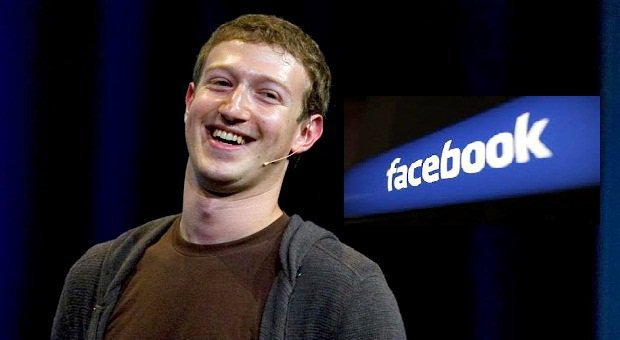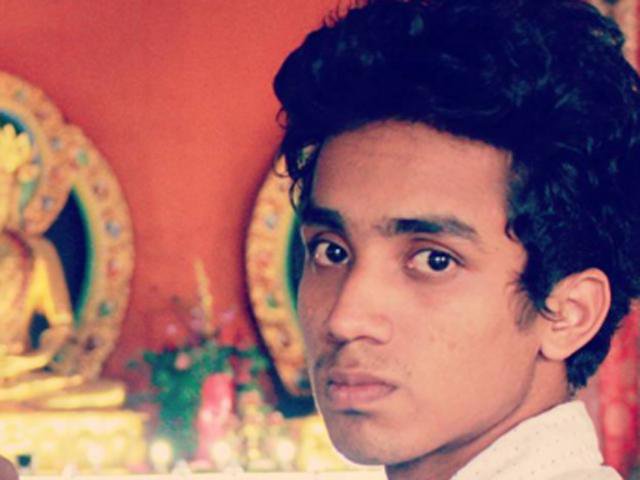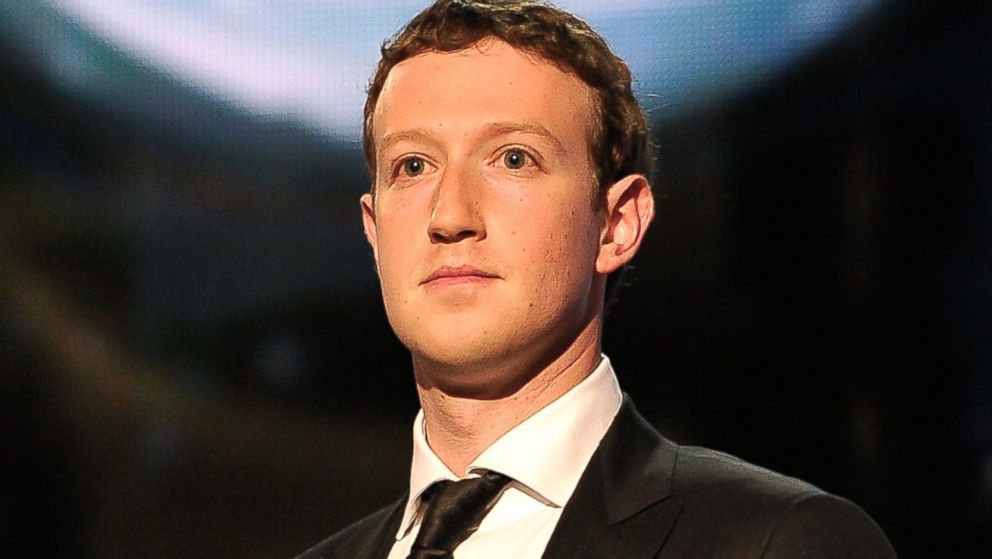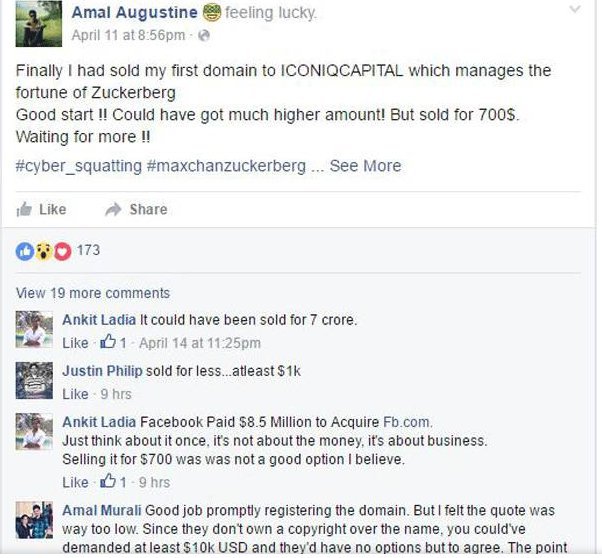Recently, Zuckerberg made news because he had agreed on a domain-sale related deal with an Indian boy hailing from Kochi.
Mark Zuckerberg might be “The Social Media Mogul” and have made billions out of Facebook, but Internet domain acquisition can sometimes be a little difficult even for the most powerful social media man!

Yes, in order to get a domain name, Mark Zuckerberg had to negotiate a deal with an Indian!
Amal Augustine, a final year engineering student from Kochi, sold the registration rights of maxchanzuckerberg.org to the Facebook founder.
Facebook approached Amal for the domain name which is short for Maxime Chan Zuckerberg, the name of Mark Zuckerberg’s daughter.
“I have registered quite a few domain names and I have been doing it for some time. I registered this domain name when their baby was born last December”, Augustine, a student of KMEA engineering college, told TOI.

Amal was contacted by GoDaddy on whether he would be willing to sell the domain name.
His reply was a “yes” and in return he asked for a decent sum of $700 (Rs. 47000)

But, to his surprise, the deal closing email came from Facebook itself!
“When the letter came officially mentioning the change of registration, I noticed the FB letterhead: But since it’s not legal to negotiate, I just went ahead and closed the deal in seven days,” he said. The mail was from none other than the firm which handles Mark Zuckerberg’s financial deals. Sara Chapel, the manager of Iconic Capital wrote directly to Amal, acknowledging the deal.

However, Amal’s friends on Facebook commented that he could have sold it for an exorbitant price, considering the fact that it is “Facebook” after all!

Cybersquatting is the process of registering an Internet domain of a trademark, which belongs to someone else or an organisation/brand. The cyber squatter then offers to sell it to the company or person who owns a trademark contained within the domain name.
Cybersquatting isn’t illegal. Even in the past, domains such as salmankhan.com have been ‘squatted’ by techies in the past. Though it is not considered as a violation as per the Indian cyber law, it is a civil rights violation.

















